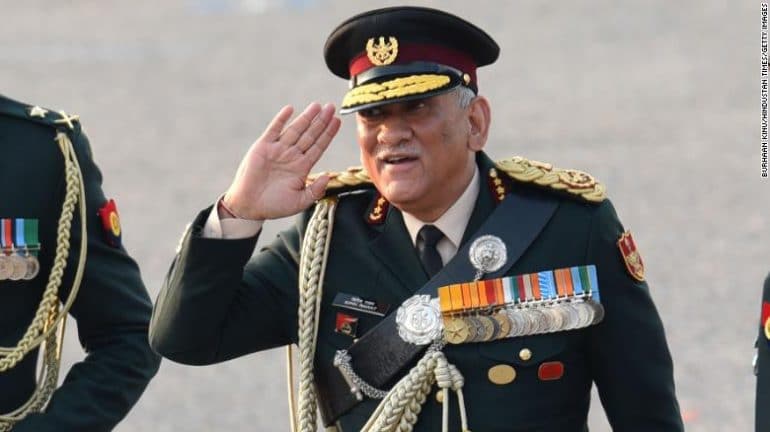General Bipin Rawat, India’s defense chief, was one of 13 personnel killed in a helicopter accident on Wednesday (8th December), raising doubts about the future of the military reforms he was leading.
Rawat was India’s first chief of defense staff, a position created by the government in 2019, and was seen as a close ally of Prime Minister Narendra Modi.
The 63-year-old was on board the Russian-made Mi-17 chopper with his wife and other top officers when it crashed near its destination in Tamil Nadu’s southern region.
Rawat, Modi added, was a “genuine patriot” and an accomplished soldier who helped modernize the country’s armed forces.
Rawat’s death “couldn’t have occurred at a worse time,” according to strategic expert and author Brahma Chellaney, who tweeted that “China’s 20-month-long border aggressiveness has culminated in a warlike situation along the Himalayan front.”
Footage from the collision showed a swarm of people using water buckets to try to put out the fire, while soldiers took one of the passengers away on an improvised stretcher.
Rawat was on his way to the Defence Services Staff College (DSSC) in Coimbatore, where he would address students and teachers from the neighboring Sulur air force post.
A fire official told AFP that the chopper was already on its way down when it crashed, and it came down around 10 kilometers (six miles) from the nearest main road, requiring emergency crews to hike to the accident site.
An eyewitness at the scene reported seeing passengers fall from the helicopter prior to the crash, and one person crawled out of the wreckage.
According to the air force, the only survivor was a captain working at the DSSC who was being treated for his injuries at a nearby military hospital.
From 2017 until 2019, Rawat was the leader of the 1.3 million-strong army before being promoted to defense services chief, which observers believe was done to better cooperation between the army, navy, and air force.
New Delhi is aiming to beef up its military capabilities in the wake of rising tensions with China over fatal battles in a disputed Himalayan region, as well as its long-running rivalry with Pakistan.
The general entered the army as a second lieutenant in 1978 and has served for four decades, commanding units in Indian-controlled Kashmir and along the Line of Actual Control with China.
He is recognized for suppressing insurgency along India’s northeastern border and overseeing a cross-border counter-insurgency campaign into Myanmar.
He was also a divisive figure, as his eagerness to make political pronouncements ran counter to the military’s conventional neutrality in the world’s greatest democracy.
He was thought to be close to the Modi regime, and he made headlines last month when he reportedly approved of “lynching terrorists” in Kashmir’s disputed area.
General Qamar Javed Bajwa, the Army commander, and General Nadeem Raza, the Chairman of the Joint Chiefs of Staff Committee (CJCSC), expressed their condolences to the Indian nation on the loss of Indian Chief of Defence General Bipin Rawat in a helicopter crash, according to the military.



